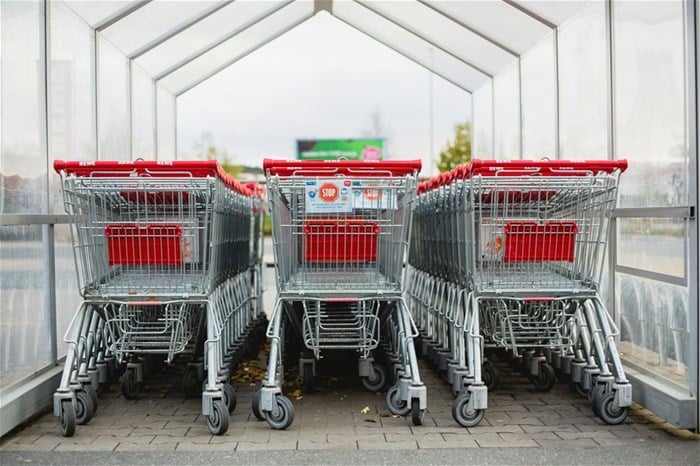South Africa's retail industry has navigated many challenges in recent years, grappling with the prolonged economic effects of the pandemic, coupled with inflation, unemployment, and successive interest rate hikes. Despite these obstacles, online shopping and mobile commerce sub-sectors have demonstrated resilience and continued growth.
Evolutions in the way consumers think and make buying decisions often materialise first in the retail arena. The industry therefore faces constant pressure to adapt to meet evolving demands in a rapidly changing world.
Here are five trends that are driving change in SA’s retail industry, especially where consumer purchasing behaviour is concerned:
1. AI: there’s an upside and a downside
In the realm of local retail trends, generative AI stands out as a notable innovation to watch. Despite its potential, AI adoption in local retail has been gradual, with it slowly being integrated into marketing, product reviews, recommendations, and data analytics.
RCS has already deployed nine digital workers (Bots) with three more currently in progress. The primary role of these Bots is to achieve enhanced customer experience, regulatory compliance and increased speed & efficiency. This automation initiative has enabled RCS employees to transition from repetitive tasks to higher-value activities, facilitated by the automated processes.
However, concerns have arisen as research highlights inherent biases within AI systems, with prejudices impacting issues of race, class, gender, and nationality making their way into AI from the realm of human interaction. This "minefield of cognitive biases" poses ethical challenges, especially in customer-facing industries like South Africa's retail sector, where progress towards diversity and inclusion is at a critical juncture.
2. Hybrid living has become a way of life
In 2024, omnichannel shopping dominates as South Africans, familiarised with e-commerce during lockdown, now adopt a hybrid approach researching product details and reviews online but going in-store to make purchases.
Research by KLA reveals a significant surge in click-and-collect shopping, with 37% opting for online orders and in-store pickups. This trend underscores the importance of seamless e-commerce experiences, advanced logistics, and top-notch customer service for retailers, essential for long-term growth and optimal customer retention in the post-pandemic era.
The RCS account card, which caters for both in-store and online transactions, enables customers to meet their shopping needs, seamlessly supporting the omnichannel reality of today’s retail landscape.
3. Value beyond the figures
Long gone are the days where the corporate world operated in isolation, with little to no connection to their communities, their stakeholders’ interests, social objectives and the environment. Greater awareness around the need for corporate social investment (CSI) and ESG (environmental, social, governance) principles is changing the way customers view and interact with brands and businesses.
The retail business of the future is one that has a firm grasp on its role and responsibilities in driving positive change and placing this philosophy at the centre of its unique value proposition. As a business, RCS has seen the immense value of embodying this change – initiatives such as the RCS Gugs Race, the Whitaker Peace and Development Initiative, LevelUp and the JAG Foundation continue to prove that success is just as much about profitability as it is about impact.
4. More seamless and secure ways to pay
Innovations such as contactless payments, mobile wallets and mobile app-enabled payments have taken off both abroad and locally. In South Africa, these technologies have brought unmatched convenience to the retail journey, as well as faster transaction speeds and dramatically improved efficiency.
Choice and convenience have become the hallmarks of memorable retail experiences. At RCS, strategic partnerships with online credit facility, Mobicred and payment platforms, Zapper and WiCode, are testament to the power of collaboration in delivering on these directives. The customer of the future will demand smooth, seamless transactions and to pay in the way that suits their individual preferences.
At the same time, the global proliferation of contactless payments and online payment portals has increased the susceptibility of customers to digital fraud. According TransUnion’s recent 2023 State of Omnichannel Fraud Report, there has been an 80% growth in suspected digital fraud attempts globally from 2019 to 2022.
Going forward, it will be imperative for retailers to ensure that the payment gateways they offer are conducive to safe and secure transactions. This will allow customers to enjoy the seamless benefits of online shopping, without having to worry about their online safety.
5. The rise of price-sensitive shoppers
The cost-of-living crisis has resulted in many South Africans having much less disposable income and needing to curb discretionary spending by large margins, becoming ever more price-conscious.
Recent research by Deloitte has highlighted the impact that this has had on consumer behaviour. 47% of South Africans report being extremely careful not to overspend on food that might go to waste, 44% are cooking at home rather than eating out and 41% are economising by only buying essential groceries.
Retailers looking to make it through the tough times and protect their profit margins need to prioritise strategic pricing mechanisms, use discounts and promotions to compete for market share, maximise up-selling and get creative about value-added products and services.
Offering customers various payment options, such as an RCS account which gives customers access to over 30,000 stores through the use of one store card, has become an essential part of the retail mix.






















































